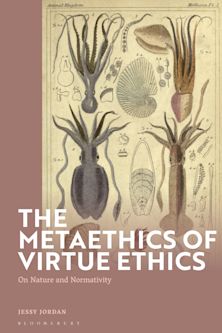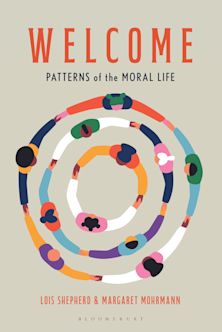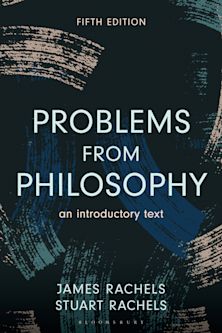- Home
- ACADEMIC
- Philosophy
- Ethics and Moral Philosophy
- Free Will, Moral Responsibility, and the Desire to Be a God
Free Will, Moral Responsibility, and the Desire to Be a God
Free Will, Moral Responsibility, and the Desire to Be a God
You must sign in to add this item to your wishlist. Please sign in or create an account
Description
Free Will, Moral Responsibility, and the Desire to be a God explores the hidden corridors of the moral responsibility system to discover why that system is so widely accepted and passionately defended. The moral responsibility system has obvious charms: it provides justification for our powerful strike-back motives, transforms selfishness into the virtuous defense of our justly deserved special benefits, draws a radical distinction between humans and the other species we exploit, and protects our nonconscious belief in a just world. Those charms notwithstanding, the resilience and endurance of the moral responsibility system indicates a hidden force that not only binds together the pieces of the system but also motivates our stubborn devotion to that system. That hidden force is a nonconscious desire to be a god: a desire that afflicts both believers and atheists, and that is almost universally denied (Nietzsche being a special exception). That desire can be found throughout the history of philosophy, from Aristotle to the present. It is also manifested in myths and a variety of religious practices and teachings. The breadth, power and harm of nonconscious “apotheosis aspiration” is the focus of this study.
Table of Contents
Preface
Chapter One: Apotheosis Aspiration
Chapter Two: Promiscuous Teleology and Apotheosis Aspiration
Chapter Three: The Self-Made Man
Chapter Four: Human Uniqueness, Miraculous Will Power, and Rational Godliness
Chapter Five: The System of Apotheosis Aspiration
Chapter Six: Reductio ad Absurdum Defenses of the Apotheosis Aspiration System
Chapter Seven: The Perils of Apotheosis Aspiration
Chapter Eight: The Cure for Apotheosis Aspiration
Bibliography
Index
About the Author
Product details
| Published | 04 Sep 2020 |
|---|---|
| Format | Ebook (Epub & Mobi) |
| Edition | 1st |
| Extent | 202 |
| ISBN | 9781793632654 |
| Imprint | Lexington Books |
| Publisher | Bloomsbury Publishing |
About the contributors
Reviews
-
This brilliant, informed, and thoroughly entertaining book dissects our deep desire to be mini-gods capable of transcending our own circumstances, history, and shaped character. Skillfully weaving discussions of philosophy, psychology, history, and theology, Bruce Waller explains how the widespread and nonconscious desire to possess godlike powers functions as a kind of “dark matter” that binds together our pernicious system of moral responsibility and makes it difficult to challenge and hard to renounce. I recommend this book highly! It should be required reading for everyone interested in free will, moral responsibility, and the significant (and harmful) role apotheosis aspiration plays in our everyday thoughts and behaviors.
Gregg D. Caruso, professor of Philosophy at SUNY Corning and author of Rejecting Retributivism (2021) and Just Deserts: Debating Free Will (w/Daniel Dennett, 2021)
-
Bruce Waller just understands things before (and better than) other people do. Then he communicates that understanding so effectively you wonder how you could ever have thought otherwise. This book is not just an important addition to the Waller collection; it is an important addition to the canon. It will change the way you think about ‘what it means to be human’ and shake any confidence that we could ever be authentic, efficient sculptors of who we are much less of what we can become: And he explains why that matters so very much. But though we may not be masters of our own will, Waller shows us that it is nonetheless crucial we understand what ‘free will’ can never mean.
Peter A. Alces, author, most recently, of The Moral Conflict of Law and Neuroscience

ONLINE RESOURCES
Bloomsbury Collections
This book is available on Bloomsbury Collections where your library has access.



































